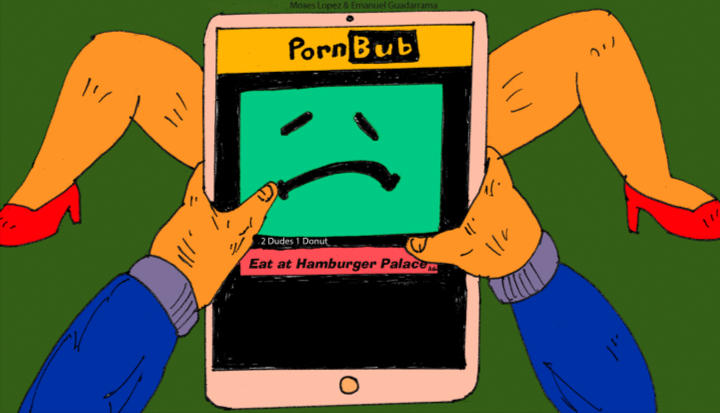Porn makes up 10-15% of all searches on the internet and an entire new generation growing up on the web is being negatively affected by over consumption of explicit content.
In the new age of the internet, the rise of explicit content can be seen in all corners of the web, not just porn sites. Children are exposed through social media in completely unrelated posts that are littered with links to various Onlyfans and other 18+ videos.
Younger people whose brains have not been fully developed are enjoying content that actively hurts their cognitive development. Porn can rewire your brain’s dopamine center making you more susceptible to addiction.
The more of it that you consume the more likely you are to have it affect your perception of a healthy relationship. The same chemicals released during sex for bonding with your mate are released when someone watches porn. Releasing bonding chemicals to pixels on a screen can be incredibly detrimental to one’s ability to form real relationships outside of explicit material
But not just relationships, Porn is notorious for setting unrealistic body standards for both men and women that tank one’s own self esteem. This effect is even worse for young people still struggling with their own self image.
Porn is not only a self esteem killer but is proven that consumption of porn directly relates with loneliness. In a study on the twos direct correlation of 1,247 English speaking participations, many of them with high scores in pornography, also scored highly in loneliness and vice versa.
This makes porn a dangerous trap as constant consumption will stimulate your brain but only for so long eventually the stimulus will not be enough and it will chase new novelties and extremes to continue dopamine release making you watch even more and pulling you deeper into loneliness.
Despite the fact that becoming addicted to explicit material can happen easily in young people, around 10% of all websites on the internet are porn meaning that it is incredibly likely that children will be exposed to sexual imagery at far too young of an age.
Young boys and girls are viewing material that promotes objectification, misogyny and is harmful to their development with nothing to stop them but age restrictions that do nothing to protect them.
The promotion of pornagraphic material on social media has skyrocketed in recent years making it more important than ever to pay attention to what young people are looking at online.
This becomes even more worrying when you learn that only 40% of parents speak to their children about being safe when surfing the internet. This along with the normalization of giving children unrestricted access to phones, computers and tablets without supervision means the problem will only continue to grow if we do not make an effort to fix the issue.
To do so it will take a combination of limiting the promotion of explicit material on sights with people under 18, keeping tabs on what kids are looking at online and keeping an open honest dialogue with young people about porn and it’s harmful effects.

















